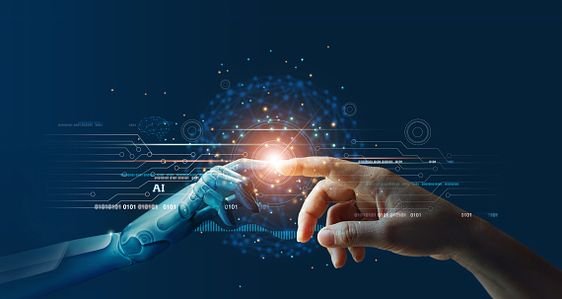
As urbanization accelerates, cities face increasing challenges related to infrastructure, transportation, energy management, public safety, and environmental sustainability. Smart cities aim to address these challenges by leveraging advanced technologies, including artificial intelligence (AI), to create more efficient, livable, and sustainable urban environments. AI plays a pivotal role in smart cities by enabling data-driven decision-making, automating processes, and enhancing the quality of life for residents. This article explores the various ways AI is integrated into smart city initiatives, its benefits, applications, and the challenges that need to be addressed.
Key Benefits of AI in Smart Cities
Enhanced Efficiency and Optimization
AI enables smart cities to optimize various services and operations, leading to increased efficiency and reduced costs. For example, AI algorithms can optimize traffic flow by analyzing real-time traffic data and adjusting traffic signals accordingly. This can reduce congestion, improve travel times, and lower emissions. Similarly, AI can optimize energy consumption in buildings by predicting demand and adjusting heating, cooling, and lighting systems to minimize waste.
Data-Driven Decision-Making
AI’s ability to analyze vast amounts of data enables city officials to make informed decisions. By collecting and analyzing data from sensors, cameras, and other IoT devices, AI systems can provide insights into urban trends and patterns. This data-driven approach helps city planners and policymakers develop strategies for infrastructure development, resource allocation, and public services. For example, AI can analyze population growth patterns to inform decisions on housing and transportation infrastructure.
Improved Public Safety and Security
AI technologies play a crucial role in enhancing public safety and security in smart cities. AI-powered surveillance systems can monitor public spaces, detect suspicious activities, and alert authorities in real-time. Facial recognition technology can help law enforcement identify individuals involved in criminal activities. Additionally, AI can analyze crime data to identify patterns and predict potential crime hotspots, enabling proactive policing and resource deployment.
Environmental Sustainability
Smart cities prioritize environmental sustainability, and AI contributes to these efforts in several ways. AI can optimize waste management by analyzing data from smart bins and waste collection routes to improve efficiency and reduce emissions. AI-powered environmental monitoring systems can track air and water quality, providing valuable data for pollution control and public health initiatives. Furthermore, AI can support the development and management of smart grids, enabling efficient energy distribution and the integration of renewable energy sources.
Enhanced Quality of Life
AI-powered solutions can improve the quality of life for city residents by providing better public services and creating more convenient living environments. For example, AI can enhance public transportation systems by optimizing routes, predicting delays, and providing real-time updates to commuters. Smart city platforms can also offer personalized services, such as suggesting the best times to travel or recommending local events and services based on individual preferences.
Applications of AI in Smart Cities
Smart Transportation and Traffic Management
One of the most significant applications of AI in smart cities is in transportation and traffic management. AI algorithms can analyze data from various sources, including traffic cameras, GPS devices, and social media, to optimize traffic flow and reduce congestion. Intelligent transportation systems (ITS) can adjust traffic signals in real-time, manage toll collection, and provide route recommendations to drivers.
Autonomous vehicles (AVs) are another promising application of AI in smart cities. AVs use AI technologies, such as computer vision and machine learning, to navigate and operate safely on city streets. The widespread adoption of AVs could reduce traffic accidents, lower emissions, and transform urban mobility.
Smart Energy Management
AI plays a crucial role in managing energy consumption in smart cities. AI algorithms can analyze data from smart meters, weather forecasts, and occupancy sensors to optimize energy use in buildings. For example, AI can adjust heating, ventilation, and air conditioning (HVAC) systems based on occupancy patterns, weather conditions, and energy prices, reducing energy waste and costs.
Smart grids, powered by AI, enable more efficient energy distribution and the integration of renewable energy sources. AI can predict energy demand, manage energy storage, and optimize the use of distributed energy resources, such as solar panels and wind turbines. This flexibility enhances grid stability and reduces reliance on fossil fuels.
Smart Waste Management
AI technologies are transforming waste management in smart cities. AI-powered waste management systems use data from smart bins equipped with sensors to monitor fill levels and optimize collection routes. This approach reduces the frequency of waste collection, lowers operational costs, and minimizes carbon emissions.
Additionally, AI can be used to improve recycling processes. Computer vision and machine learning algorithms can sort recyclable materials more accurately and efficiently than traditional methods, increasing recycling rates and reducing waste sent to landfills.
Public Safety and Emergency Response
AI enhances public safety and emergency response in smart cities through various applications. AI-powered surveillance systems can detect anomalies, such as unattended bags or unusual crowd behavior, and alert authorities. Facial recognition technology can help identify persons of interest and track their movements in real-time.
AI can also support emergency response efforts by analyzing data from social media, emergency calls, and sensors to identify incidents and coordinate response efforts. For example, AI can predict the spread of natural disasters, such as wildfires or floods, and provide early warnings to residents and emergency responders.
Smart Healthcare and Public Health
AI-driven solutions in smart cities extend to healthcare and public health. AI-powered telemedicine platforms enable remote consultations and monitoring, improving access to healthcare services for residents. AI can also analyze health data to identify trends and predict outbreaks of diseases, allowing public health officials to take preventive measures.
Smart cities can implement AI-powered health monitoring systems that track air and water quality, noise levels, and other environmental factors that impact public health. This data can inform policies and interventions to improve overall well-being.
Smart Buildings and Infrastructure
AI technologies contribute to the development of smart buildings and infrastructure. AI-powered building management systems can optimize energy use, enhance security, and improve occupant comfort. For example, AI can adjust lighting, temperature, and ventilation based on real-time data and user preferences.
In infrastructure management, AI can monitor the condition of roads, bridges, and other critical infrastructure using data from sensors and drones. AI algorithms can predict maintenance needs, identify potential issues, and prioritize repairs, ensuring the longevity and safety of city infrastructure.
Challenges and Considerations
Data Privacy and Security
The extensive use of data in smart cities raises significant concerns about data privacy and security. AI-powered systems collect and analyze vast amounts of personal and sensitive data, including surveillance footage, health records, and location information. Ensuring that this data is protected from unauthorized access and misuse is critical.
Smart cities must implement robust cybersecurity measures and data protection policies to safeguard residents’ privacy. This includes encryption, access controls, and regular security audits. Additionally, transparency and clear communication about data collection and use are essential for building public trust.
Ethical and Social Implications
The deployment of AI in smart cities raises ethical and social considerations. For example, the use of facial recognition technology can lead to concerns about surveillance and civil liberties. AI systems can also inadvertently perpetuate biases present in the data they are trained on, leading to discriminatory outcomes.
To address these issues, smart cities must establish ethical guidelines for the use of AI technologies. This includes ensuring that AI systems are transparent, fair, and accountable. Public engagement and consultation are also crucial for addressing ethical concerns and ensuring that AI technologies align with community values.
Integration and Interoperability
Smart cities rely on the integration of various technologies and systems, including AI, IoT devices, and data platforms. Ensuring interoperability between these systems is essential for seamless data sharing and efficient operations. However, achieving integration can be challenging due to differences in technology standards, data formats, and protocols.
Smart cities must adopt open standards and collaborate with technology providers to ensure interoperability. This includes developing common data formats, communication protocols, and APIs. Interoperability is key to creating a cohesive smart city ecosystem where different technologies and systems work together harmoniously.
Digital Divide and Accessibility
The deployment of AI and smart city technologies can exacerbate the digital divide if not implemented inclusively. Residents without access to digital technologies and the internet may be left behind, unable to benefit from smart city services. Additionally, some residents may lack the digital literacy needed to use AI-powered platforms effectively.
To address these challenges, smart cities must prioritize digital inclusion. This includes investing in digital infrastructure, providing affordable internet access, and offering digital literacy programs. Ensuring that all residents can access and benefit from smart city technologies is essential for promoting equity and social inclusion.
The Future of AI in Smart Cities
The future of AI in smart cities is promising, with continued advancements in AI technologies and increasing urbanization. As AI algorithms become more sophisticated and capable, smart cities will become more efficient, sustainable, and responsive to residents’ needs.
Integration with Emerging Technologies
The integration of AI with emerging technologies, such as 5G, blockchain, and quantum computing, will further enhance smart city capabilities. For example, 5G networks can enable faster data transmission and real-time communication between IoT devices, while blockchain can provide secure and transparent data sharing. Quantum computing has the potential to solve complex optimization problems, further improving smart city operations.
Citizen-Centric Smart Cities
The future of smart cities will increasingly focus on being citizen-centric, prioritizing residents’ needs and preferences. AI-powered platforms will enable more personalized and user-friendly services, such as tailored public transportation options and customized healthcare solutions. Public participation and engagement will also play a crucial role in shaping smart city initiatives, ensuring that technologies align with community values and priorities.
Resilient and Sustainable Urban Environments
As cities face challenges related to climate change, resource scarcity, and population growth, AI will play a critical role in building resilient and sustainable urban environments. AI-powered systems can optimize resource use, reduce environmental impact, and enhance disaster preparedness. For example, AI can support the development of smart grids, optimize water management, and predict the impact of extreme weather events.
Conclusion
AI is a cornerstone of smart city initiatives, offering innovative solutions to urban challenges and enhancing the quality of life for residents. From optimizing transportation
ALSO READ: The Role of AI in Smart Cities









